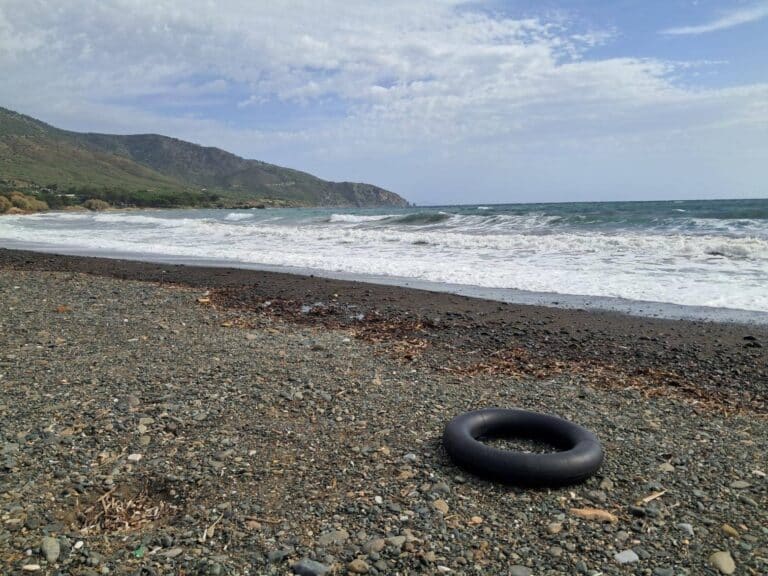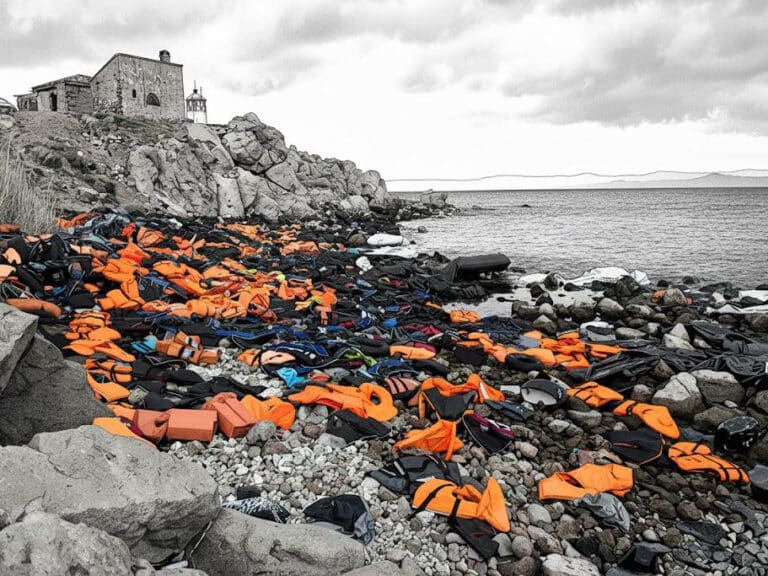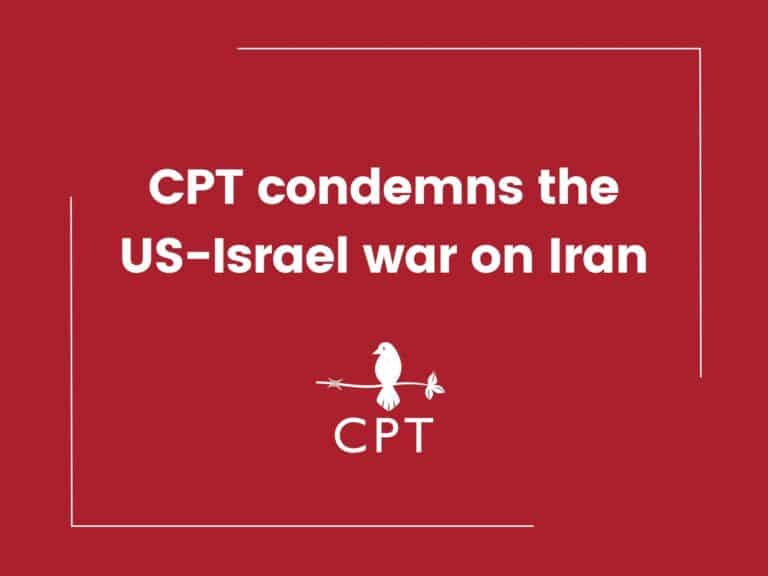CPTnet
24 October 2014
MEDITERRANEAN: Waiting for justice
by James Jakob Fehr
[Note: The following has been adapted for CPTnet. The original is
available on CPT Mediterranean’s blog.]
Standing in solidarity with refugees is often
fulfilling. Here on the Greek
island of Lesbos these people, mostly from Syria and Afghanistan, have escaped
the threat of bombs, abduction, and hunger. Usually, it feels really good accompanying them. Usually.
But Monday was different. We observed the trial of the Syrian boy, Rabi’e, who turned
eighteen while in prison. The
coast guard arrested him, claiming that he was responsible for smuggling
twenty-two people in a boat into Greek waters and for attempting to sink that
same boat so that they would be rescued.
The case was delayed from 9:00 a.m. to 12:00 p.m., the
translator did not show up, and another (poor) translator was appointed.
 |
|
| Rabi’e, handcuffed on the wheelchair-stretcher next to the ambulance. Photo: © 2014 Ramyar Hassani, CPT Mediterranean |
Because the trial took place in juvenile court, we were not permitted to attend the proceedings. We waited with others in front of the glass doorsand watched the
goings-on inside. We learned later
that the coast guard identified Rabi’e as the one who tore up a piece of paper
in the boat with instructions on what to do in Europe and threw it in the
water. Six months after the fact,
in the middle of night and at sea, they said could accurately identify
him. They said they retrieved the
paper from the water and read it.
But the couldn’t produce this evidence in court, because seawater had
damaged it irretrievably. After
the coast guard spoke, Mahmoud, his brother was allowed to enter and tell the
three female judges what he witnessed.
He told them that Rabi’e could not have been responsible for destroying
his own boat, because he could not swim.
The judges examined Rabi’e as well, and finally the defence attorney
summarized the case.
Our wait continued, because the three judges were not in
agreement. They retired to a
private session, and that raised our hopes, even though we knew that Greek
courts are merciless when dealing with smugglers and usually side with the
coast guard witnesses.
After hours of waiting, the judges announced Rabi’e was
guilty and sentenced to seven years imprisonment. As guards led him out, I saw his ashen face. I saw how he fought for breath. And then suddenly there was confusion. An ambulance was called. He had fainted. Later we learnt that he fainted
regularly in his prison cell, because he is diabetic and receives no
medicine.
The events of Monday make me want to cry out with the
ancient Hebrew prophet Habakkuk:
“O Lord, how long shall I cry for help, and you will not hear? Or cry to you ‘Violence!’ and you will
not save? Why do you make me see wrongdoing, and why do you permit oppression?…The
way things are, the law is paralyzed, and justice never goes forth.” Hab. 1:2-4
We waited for seven hours, but Rabi’e must now wait for
seven years, if the appeal in his case is not successful. O Lord, how long must we wait?
The work for peace and justice is not a task for the faint
of heart. It requires courage,
hope, and resilience in the face of injustice. But we are not daunted. We believe that there will be an appeal in this case. We believe that we can raise support
for this young boy. And we will
not leave him alone.



